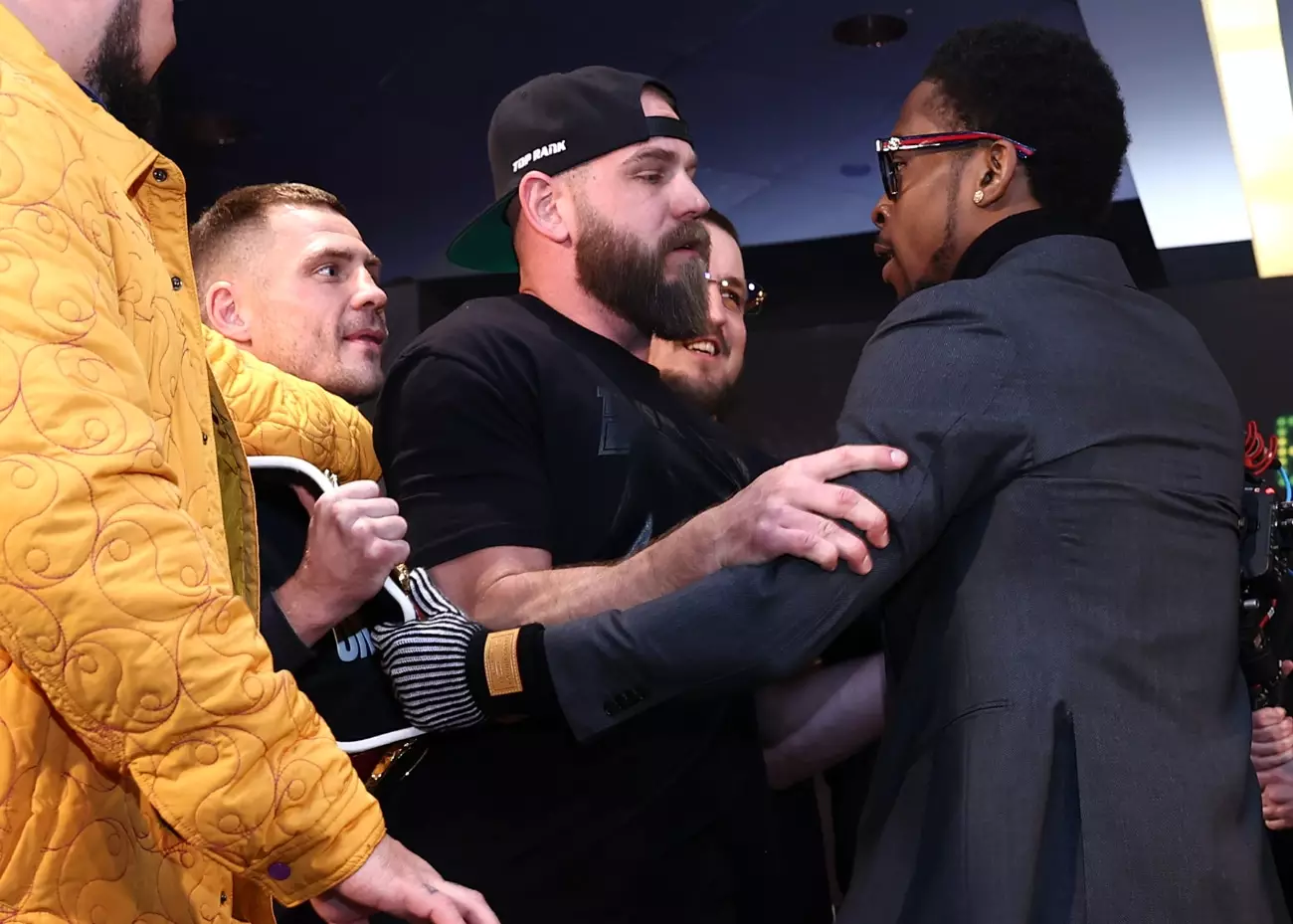The boxing world thrives on drama, rivalries, and heated exchanges. Recently, a situation emerged that encapsulates this volatile atmosphere perfectly. Keyshawn Davis accused WBO lightweight champion Denys Berinchyk of racism, inciting a wave of responses that brought various personalities into the fray, including former champion Teofimo Lopez. This incident, sparked by a mysterious delivery of bananas and watermelons to Davis’s hotel room, prompts an examination not only of the actions taken but also of the broader implications regarding accountability and character in sports.
At a recent press conference, Davis asserted that Berinchyk was the culprit behind an inflammatory prank involving a delivery of fruit, which he interpreted as a racist action. Such claims are incredibly weighty—effectively branding someone as a racist can have profound consequences. The accusation came without substantiation; Davis lacked any proof linking Berinchyk to the delivery, yet he persisted in his assertions. The way in which he publicly condemned Berinchyk raises serious questions about the ethics of making unverified accusations.
Berinchyk’s denial has not quieted the storm. The boxer maintains his innocence but finds himself unfairly dragged into a controversy that risks tarnishing his reputation. While Davis’s fury might stem from personal grievances, labeling someone with such a serious accusation based solely on guesswork is reckless. In competitive sports, where characters are continuously scrutinized, being labeled a racist can derail a career.
Lopez, amid this unfolding narrative, joined the conversation through social media, appearing to revel in the drama. Speculation arose that he might even be the one behind the prank, suggesting that his animosity towards Davis fueled such actions. If true, this would complicate the situation further, casting a shadow over the ethicality of engaging in such juvenile behavior during a serious business like boxing.
The very potential that Lopez orchestrated this stunt opens up discussions about how rivalries can distort character judgment and evoke actions that might otherwise seem unthinkable. If the boxing community starts to engage more in these tactics, it may become a toxic arena where integrity takes a backseat to rivalry and sensationalism.
In the midst of the drama, Davis expressed his aspirations to claim Berinchyk’s title, framing his career trajectory as that of a fierce competitor aiming to cement his legacy. He makes a compelling argument that securing a world title validates one’s status as an elite athlete—after all, champions are often judged by their victories. However, his comments seem deliberately crafted to generate buzz rather than purely focusing on sportsmanship and skill.
He shared an anecdote about wanting to face Berinchyk before he had the WBO title, which raises questions about the fighters Davis chooses to pursue. He previously dismissed Andy Cruz, citing a lack of value due to Cruz not holding a title, yet he sought a match with Berinchyk before the latter earned his championship status. Critics might argue that Davis is curating his opponents, favoring fighters he perceives as less risky. This selective matchmaking jeopardizes the authenticity of his competitive spirit, as the measure of a true champion includes taking on formidable opponents without hesitation.
A Toxic Climate for Accountability
The entire episode shines a light on a distressing undercurrent in boxing culture: a lack of accountability. When accusations are made without proof, it not only burdens the accused but also cheapens serious discussions about racial issues that should be approached with sensitivity and respect. Additionally, with figures like Lopez contributing to the drama rather than de-escalating it, the atmosphere becomes increasingly toxic, emphasizing spectacle over integrity.
The confrontation between Keyshawn Davis and Denys Berinchyk exemplifies the precarious balance of competition and character in boxing. The ramifications of unfounded accusations can reverberate far beyond the ring, leading to reputational damage and an environment fraught with mistrust. As the sporting world follows this narrative, it is imperative to address these themes to foster a more respectful and responsible culture.

